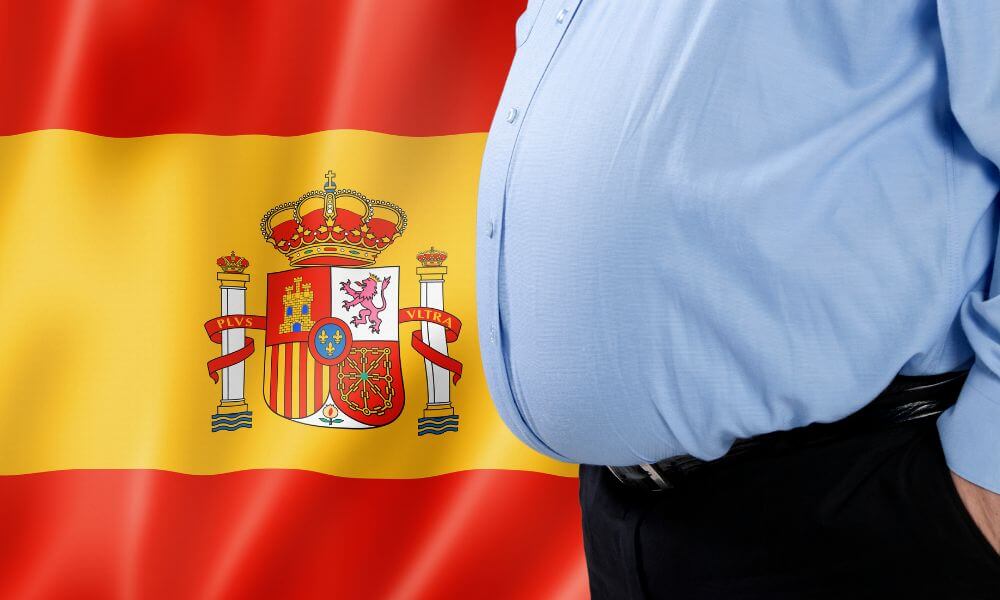In Spanish slang, to call someone or something fat, you would say gordo or gorda. These are masculine and feminine forms of the same word. You can also say gordito, which means someone or something that is small and fat. You might otherwise call them panzón, though this is less common.
So, Spanish language really has just a couple of slang terms for fat.
These two slang terms convey all the meaning anyone speaking in Spanish should need.
It’s worth mentioning that these terms don’t always have to be insulting in the right, familiar contexts, but if you don’t know a person well, it can certainly be taken as an insult.
Let’s find out more.

[adinserter block=”1″]
What do the Spanish say for fat?
Spanish slang includes a few different terms for fat.
The most common you’re likely to hear is some variation of gordo.
This just means fat, a fat person, but it can also be applied to animals or even inanimate objects. It’s really a noun, more than an adjective.
You might call someone gordo¸ like a nickname, rather than describing someone as being gordo.
Spanish is, unlike English, a gendered language.
That means that, depending on the context, you might use some other variation of gordo depending on whom you are addressing. I’ll get into that a bit more later.
Calling someone gordo is a bit like calling someone “fatso” in English.
On the one hand, it’s a way to insult someone.
Most people don’t like being called fatso, and it’s certainly a sensitive topic that you’d want to avoid.
On the other hand, though, words like fatso can be terms of endearment and familiarity among friends.
In the right setting and among the right people, it’s more a playful term that isn’t meant to insult but to indicate friendliness.
It’s very common, especially among younger friend groups, to take terms that might otherwise be insults and use them to be friendly with one another.
Another word you might hear for fat is panzón.
This has more the sense of the English paunchy, meaning large-bellied.
It’s not just an overweight or large person, but a person with a large belly in particular.
We might also call this a beer belly in English, depending on the context.
So, while it does still mean fat in a sense, it’s in rather a different and more specific sense than gordo.
Panzón, also, is a noun, where gordo is an adjective.
So, you would say someone “has a panzón.”
Where do all these words come from?
Why do the Spanish say gordo?
Spanish is a romance language, a feature it shares with languages like French and Italian.
This means that there is a great deal more direct Latin roots in the words it uses today than in English.
English, of course, gets a lot of its words from Latin, but less so than the typical romance languages.
This is the case with gordo.
It’s rather an old term, from what we can tell. It seems to originate in the 13th Century, from Old Galician and Old Portuguese.
These languages had the same tem, gordo, which ultimately derived from the Latin gurdus.
This Latin term meant stubborn or heavy.
We find gordo first used in the Cantigas de Santa Maria, a collection of 400 poems written sometime between 1221 and 1284.
Why do the Spanish say gorda?
So, what about this other form—gorda?
Well, as I mentioned, Spanish is a gendered language.
Again, most romance languages tend to have two grammatical genders, masculine and feminine.
This is often a bit difficult for English speakers to get their heads around, but it just depends on what you’re describing.
For a man, you would say they were gordo.
For a woman, you would say they were gorda.
Of course, if you were polite, you wouldn’t say either!
But this is the only distinction between the two terms.
They are the same word in different grammatical genders.
They come from the same root and bear the same meaning.
But there’s one more form of this word.
Why do the Spanish gordito?
Gordito is, again, a variation of the same term, with a slightly different meaning.
It is a common convention in Spanish to add the ito suffix to a word to indicate the diminutive sense, that something is smaller than usual.
This is all that is meant by gordito or its feminine form gordita.
A smaller, fat person, perhaps a child.
Again, be very careful how you use this one!
Why do the Spanish say panzón?
Finally, where does panzón come from?
It’s a combination of two words, panza and the suffix ón.
Panza is simply a Spanish term meaning paunchy or round.
This in turn ultimately derives from the Old Porteguese panca, which again just meant paunch.
With the added suffix, panzón comes to mean large paunch, a large belly, and ultimately a fat person.
Usually, panzón is used as a noun, as this is typically how that suffix works.
The Spanish slang terms for fat are only a handful, then, mostly just variations on the main word used.
While these terms, in the right context, don’t have to be insulting, if you are looking to get a bit of Spanish under your belt before traveling there, I would be careful how you use these terms. It could land you in hot water.
[adinserter block=”1″]

